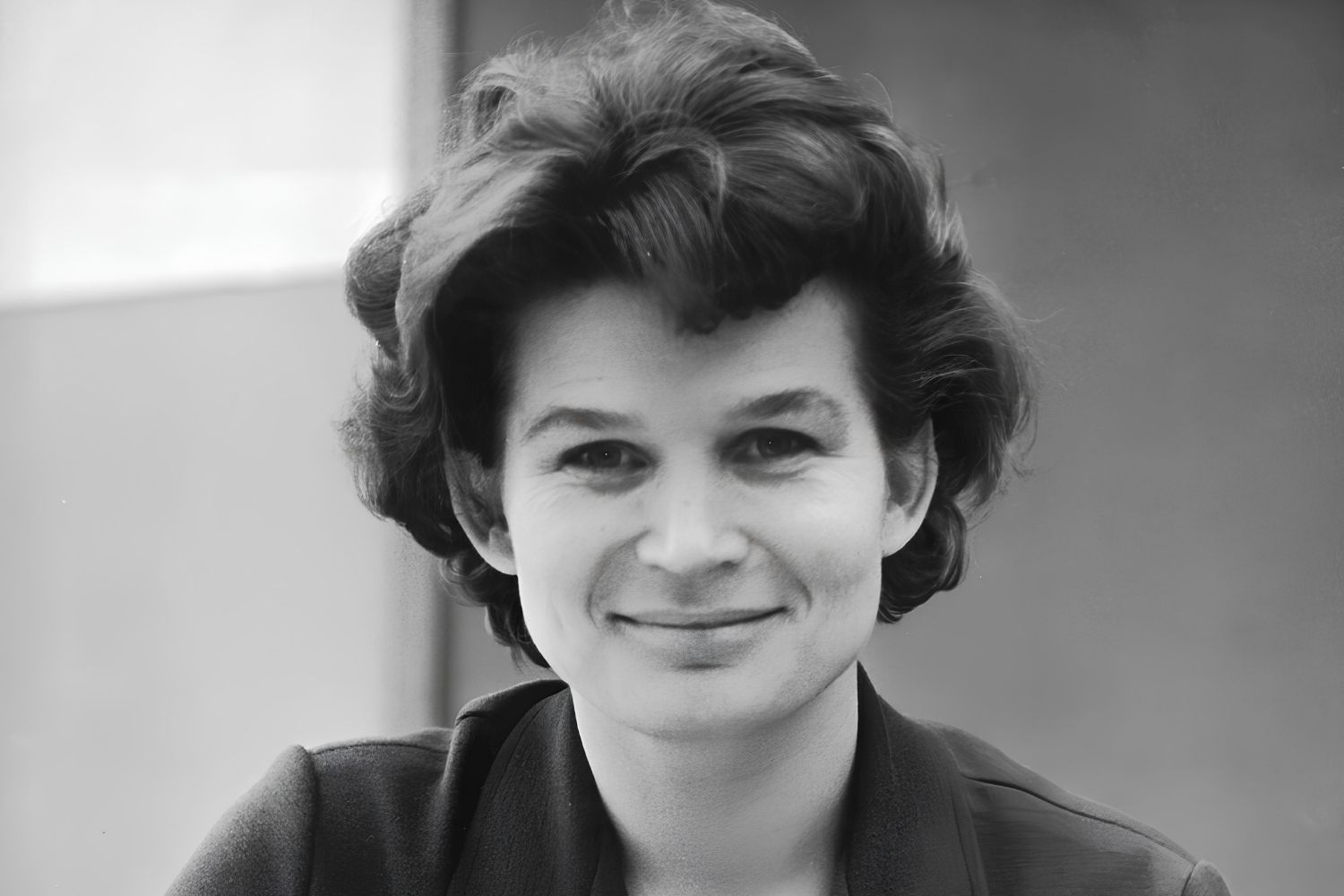World's Most Fertile Woman: The Story Of Valentina Vassilyev
Is it possible for one woman to give birth to 69 children? The astonishing, almost unbelievable story of Valentina Vassilyev, a Russian peasant woman from the 18th century, suggests it is. Her name is etched in the Guinness Book of World Records as the most prolific mother in history, a testament to a life brimming with extraordinary fertility.
The story of Valentina Vassilyev, though steeped in legend, emerges from historical accounts dating back centuries. While skepticism is understandable, various sources corroborate this incredible narrative. She was the wife of Feodor Vassilyev, a peasant from Shuya, Russia, and together they embarked on a reproductive journey unlike any other. Between 1725 and 1765, Valentina is said to have given birth to an astounding 69 children in a mere 27 pregnancies. These weren't just single births, either; her pregnancies included 16 pairs of twins, 7 sets of triplets, and 4 sets of quadruplets. While records from the 18th century are not always easily verifiable, the consistency of the reports lends credence to the extraordinary claim.
| Full Name | Valentina Vassilyev |
| Birth Year | Likely early 18th century (exact date unknown) |
| Death Year | Likely late 18th century (exact date unknown) |
| Spouse | Feodor Vassilyev |
| Children | 69 (16 pairs of twins, 7 sets of triplets, 4 sets of quadruplets) |
| Nationality | Russian |
| Occupation | Peasant |
| Known For | Most children born to a single woman (Guinness World Record) |
| Reference | Guinness World Records |
Life in 18th-century Russia was undoubtedly harsh, particularly for peasant families. Limited access to medical care, demanding physical labor, and high infant mortality rates were the norm. Yet, amidst these challenges, Valentina Vassilyevs body defied expectations, consistently conceiving and carrying multiple children to term. Consider the sheer physical demands on her body. Twenty-seven pregnancies, each carrying its own risks and strains, would have taken an immense toll. Moreover, the lack of modern prenatal care and nutritional understanding makes her accomplishment even more extraordinary. It speaks volumes about her constitution and resilience.
- The Untold Story Of Band Of Brothers Captain Sobel Fact Vs Fiction
- Asma Assad From First Lady To Exile The Assad Story
The numbers themselves are staggering. Sixty-nine children! Imagine the constant cycle of pregnancy, childbirth, and childcare. Feeding, clothing, and tending to such a large family would have been an immense undertaking, requiring tireless effort from both Valentina and Feodor. The logistics of managing such a household are almost incomprehensible by modern standards. There would have been a near-constant need for food, clothing, and basic necessities. Older children likely played a significant role in helping to care for their younger siblings, creating a family dynamic built on shared responsibility and interdependence. The sheer volume of work needed to sustain such a large family would have been truly remarkable.
While the Guinness World Records officially recognizes Valentina Vassilyev's achievement, some details surrounding her life remain shrouded in mystery. The absence of detailed personal records from that era leaves room for speculation and interpretation. However, the core fact remains: Valentina Vassilyev gave birth to an extraordinary number of children, a feat unmatched in recorded history. This scarcity of information only adds to the mystique surrounding Valentina. We are left to imagine the woman behind the legend, a figure of incredible strength, endurance, and maternal capacity.
Beyond Valentina's story, there's the equally intriguing narrative of her husband, Feodor Vassilyev. According to some accounts, Feodor went on to father 18 more children with his second wife, bringing his total number of offspring to a staggering 87. If true, this would make him the most prolific father in recorded history. Whether these claims are entirely accurate is difficult to ascertain, but they add another layer of intrigue to the Vassilyev family saga. The idea of one man fathering so many children is almost as astonishing as a woman bearing them. It highlights the potential for extraordinary reproductive capacity on both sides of the equation.
- Khabib Nurmagomedovs Wife All About Patimat 2024 Update
- Brittany Ashton Holmes Now Life After Little Rascals Revealed
Interestingly, it is reported that 67 of Valentina's 69 children survived infancy, which was a remarkably high survival rate for the 18th century. This statistic underscores the resilience of the family and their ability to provide for their numerous offspring, despite the hardships of their time. Maintaining the health and well-being of so many children in an era of limited medical knowledge would have been a constant challenge, requiring significant effort and resourcefulness from the entire family. Their collective strength and commitment to each other would have been essential for their survival.
The story first gained widespread attention through a 1738 publication in the Gentleman's Magazine. This article, based on information from an English merchant in St. Petersburg, served as the initial source for the extraordinary claim. The fact that the story originated from a foreign source suggests that the Vassilyev family's unusual fertility was a subject of considerable interest and curiosity even at the time. This early documentation lends further credence to the narrative, positioning it as more than just folklore or legend.
While its difficult to confirm every detail of Valentina Vassilyevs life, her place in history is secure. She remains a symbol of extraordinary fertility and maternal capacity, a woman whose story continues to fascinate and inspire awe. The sheer scale of her achievement defies easy explanation, challenging our understanding of the limits of human reproduction. Whether viewed as a medical anomaly or a testament to the enduring power of the human body, Valentina Vassilyev's legacy is one that will continue to be debated and celebrated for generations to come.
Consider the social context of Valentina Vassilyevs life. She lived in a rural, agrarian society where large families were often seen as a blessing, providing additional labor for the fields and ensuring the family's survival. The more children a family had, the more hands there were to help with the demanding tasks of farming and household management. This cultural perspective may have influenced Valentina and Feodor's decision to continue having children, even as their family grew to an unprecedented size. In that era, children were seen as an economic asset, contributing to the family's overall well-being.
It's also worth noting the potential genetic factors that may have contributed to Valentina's extraordinary fertility. While we lack specific medical details, it's possible that she possessed unique genetic traits that predisposed her to multiple pregnancies and high fertility rates. Further research into the genetics of fertility could potentially shed light on the biological factors that allowed Valentina to conceive and carry so many children to term. Understanding these genetic factors could have implications for fertility treatments and reproductive health in the future.
The impact of Valentina's story extends beyond the realm of historical records and Guinness World Records. Her story has become a cultural phenomenon, inspiring countless articles, documentaries, and discussions about fertility, family size, and the limits of human reproduction. She has become a symbol of motherhood and the incredible capacity of women's bodies to create life. Her story challenges our assumptions about what is possible and encourages us to consider the remarkable diversity of human experience.
In modern times, with advancements in reproductive technology and family planning, the prospect of a woman having 69 children seems almost unimaginable. However, Valentina Vassilyev's story reminds us of the extraordinary feats that were possible in a different era, when life was governed by different rules and expectations. Her story provides a valuable perspective on the history of reproduction and the changing social attitudes towards family size and motherhood.
While some may view Valentina Vassilyev's story with skepticism, it's important to remember the historical context in which she lived. Information was not as readily available as it is today, and record-keeping practices were not always consistent. However, the fact that her story has been documented in multiple sources over several centuries suggests that there is a significant degree of truth to it. Even if some of the details are embellished or inaccurate, the core fact remains: Valentina Vassilyev was an extraordinary woman who defied the odds and left an indelible mark on history.
Consider the implications of Valentina Vassilyev's story for our understanding of human evolution and adaptation. Her extraordinary fertility suggests that women's bodies are capable of far more than we often assume. Her story challenges us to rethink our understanding of the biological limits of reproduction and to consider the potential for human adaptation in response to different environmental and social conditions. By studying her case, we can gain valuable insights into the complexities of human biology and the remarkable resilience of the human body.
The legacy of Valentina Vassilyev extends beyond her reproductive achievements. She represents a symbol of strength, resilience, and the power of the human spirit. Her story reminds us that ordinary people are capable of extraordinary things, and that even in the face of hardship and adversity, it is possible to achieve greatness. Her life serves as an inspiration to us all, encouraging us to push the boundaries of what we think is possible and to strive for excellence in all that we do.
In conclusion, the story of Valentina Vassilyev is a remarkable and enduring testament to the power of the human body and the extraordinary potential of women. Her story, while difficult to fully verify, has captivated audiences for centuries, and continues to inspire awe and wonder. As we continue to explore the mysteries of human biology and the limits of human reproduction, Valentina Vassilyev's name will undoubtedly remain etched in the annals of history as the most prolific mother of all time.
It is important to also consider the societal pressures and expectations placed on women during the time Valentina Vassilyev lived. In 18th-century Russia, a woman's primary role was often seen as bearing children and contributing to the family's labor force. The more children a woman had, the more respected and valued she might be within her community. This cultural context could have influenced Valentina's choices and contributed to her extraordinary reproductive journey. It's also possible that she faced pressure from her husband or other family members to continue having children, even as her family grew to an unprecedented size.
Furthermore, the story of Valentina Vassilyev raises important questions about the ethical considerations surrounding reproduction and family size. In a world facing overpopulation and environmental challenges, it's important to consider the impact of large families on the planet's resources. While Valentina's story is undoubtedly remarkable, it also serves as a reminder of the need for responsible family planning and sustainable living. We must strive to balance our desire for children with our responsibility to protect the environment and ensure a sustainable future for generations to come.
Despite the lack of detailed personal records, Valentina Vassilyev's story has been passed down through generations, becoming a part of Russian folklore and a source of national pride. She is often celebrated as a symbol of Russian strength and resilience, a woman who overcame incredible challenges and achieved extraordinary things. Her story has inspired countless artists, writers, and filmmakers, who have sought to capture the essence of her remarkable life and legacy.
The story of Valentina Vassilyev also serves as a reminder of the importance of preserving historical records and documenting the lives of ordinary people. By collecting and preserving historical documents, oral histories, and personal accounts, we can gain a better understanding of the past and learn valuable lessons about human nature and the challenges and triumphs of previous generations. Valentina's story is a testament to the power of collective memory and the importance of preserving the stories of those who might otherwise be forgotten.
It is also important to acknowledge the limitations of our current understanding of Valentina Vassilyev's story. While we have access to historical records and anecdotal accounts, we lack the kind of detailed medical and biographical information that would allow us to fully understand her life and experiences. We can only speculate about the challenges she faced, the joys she experienced, and the impact she had on her family and community. However, even with these limitations, her story remains a powerful and inspiring example of the human capacity for resilience, strength, and extraordinary achievement.
In the end, the story of Valentina Vassilyev is more than just a historical curiosity or a Guinness World Record. It is a story about the human spirit, the power of motherhood, and the extraordinary potential that lies within each of us. Her life may have been vastly different from our own, but her story resonates with us because it speaks to the universal themes of family, love, and the enduring power of the human connection. As we continue to explore the mysteries of the human experience, Valentina Vassilyev's name will undoubtedly continue to inspire and amaze us for generations to come.
The fact that Valentina's story has survived for so long, passing through different cultures and generations, speaks to its enduring power and universal appeal. It touches upon fundamental aspects of human existence, such as birth, family, and the continuation of life. It reminds us of the interconnectedness of all living beings and the importance of cherishing the bonds that connect us to each other. It encourages us to reflect on our own values and priorities, and to consider the legacy that we will leave behind for future generations.
The scientific perspective offers an interesting lens through which to view Valentina Vassilyev's case. Modern reproductive science acknowledges the potential for genetic predispositions that could contribute to higher rates of multiple births. However, even with these predispositions, the sheer number of children born to Valentina remains an anomaly. Scientists and medical professionals continue to study cases of extraordinary fertility to better understand the complexities of human reproduction and to develop new treatments for infertility and other reproductive health issues.
The story also invites us to consider the role of chance and circumstance in shaping human lives. While Valentina may have had certain genetic predispositions that contributed to her fertility, it's also possible that she simply benefited from a combination of fortunate circumstances. Perhaps she had access to better nutrition than other peasant women of her time, or perhaps she had a particularly strong and supportive network of family and friends who helped her care for her children. Whatever the reasons, her story serves as a reminder that human lives are often shaped by a complex interplay of factors, some of which are within our control and some of which are not.
The philosophical implications of Valentina Vassilyev's story are also worth exploring. Her extraordinary fertility raises questions about the meaning of life, the nature of existence, and the purpose of reproduction. Some might argue that her life was a testament to the power of nature and the importance of perpetuating the human species. Others might argue that her story highlights the ethical dilemmas surrounding reproduction and the need for responsible family planning. Whatever one's perspective, Valentina's story provides a rich and complex framework for philosophical reflection and debate.
It is also important to remember that Valentina Vassilyev was not just a biological phenomenon; she was a human being with her own thoughts, feelings, and experiences. While we may never know the full details of her life, we can imagine the challenges she faced, the joys she experienced, and the love she shared with her family. By acknowledging her humanity, we can gain a deeper appreciation for her extraordinary achievement and the lasting legacy she left behind.
- Shailene Woodley From Teen Star To Activist Icon Beyond
- Taurus Scorpio Friendship Compatibility Challenges More

35 Facts About Valentina Vassilyev Facts

35 Facts About Valentina Vassilyev Facts

35 Facts About Valentina Vassilyev Facts